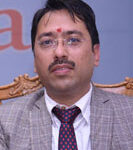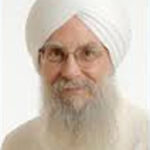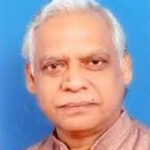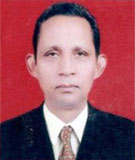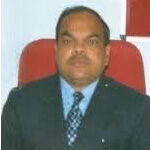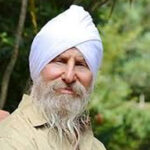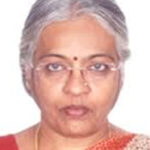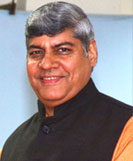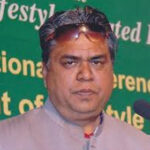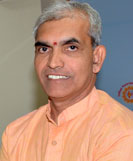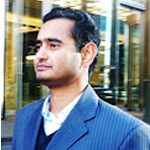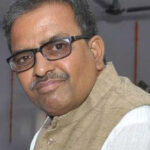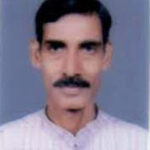International Journal of Yoga and Allied Sciences
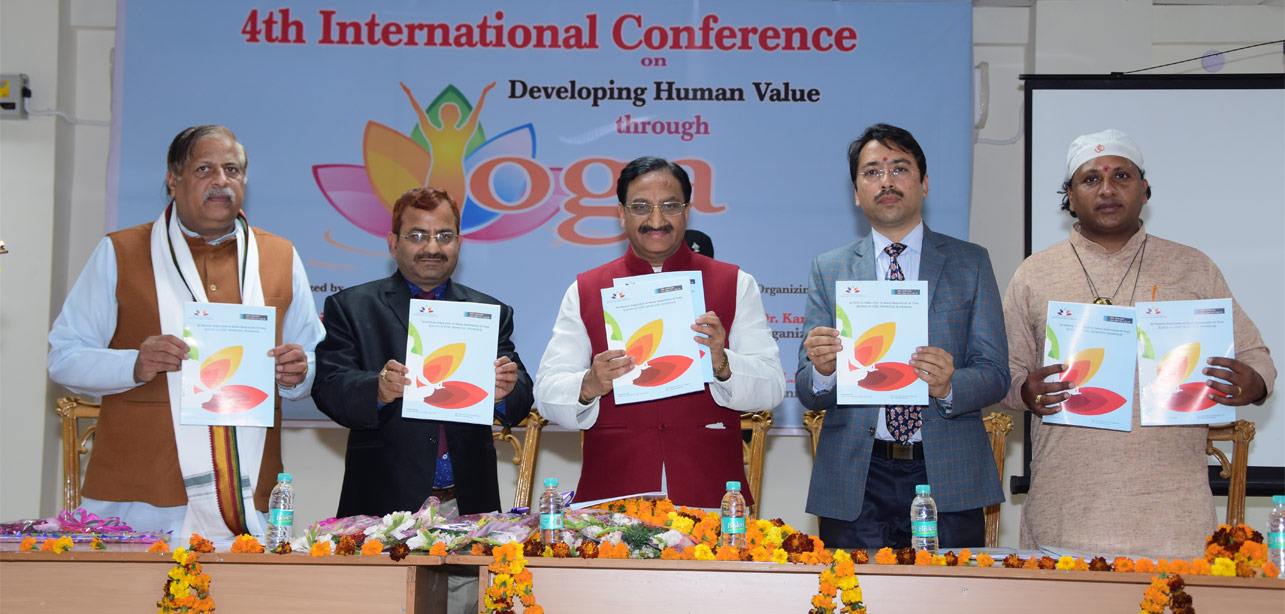
“International Journal of Yoga and Allied Sciences” is an official publication of Indian Association of Yoga having an International Standard Serial Number (ISSN: 2278 – 5159). The Journal includes both literary and empirical research articles related to the Yogic Science, Philosophy, Psychology, Education, Management, Ayurveda and other Complementary therapy systems. The Journal provides the platform to the academicians and scholars to share their findings in the intellectuals.
Research is a systematic process of collecting and analyzing information to increase our understanding of the phenomenon under study. It is the function of the researcher to contribute to the understanding of the phenomenon and to communicate that understanding to others.
Research is, however, a skilled activity. Like any skill, it must be practices. The best way to improve your research method is; therefore, to continually assess your research practice against the objectives and guidelines.
IJOYAS is an internationally reputed Bi-annual interdisciplinary research journal dedicated to Yogic Science. It publishes original articles (research, scientific, review, conceptual, theoretical, popular etc.) research notes, books review, letters to the Editor, any research news, related to conference etc. from any corner of the world dealing with technical and professional aspects of Yoga and allied disciplines like Philosophy, Spirituality, Psychology, Human Consciousness, Medical, Paramedical sciences, Health sciences, Therapy, Education, Physical education, exercise & sports sciences, bio-mechanics, Literary /textual studies, Physiology, Biochemistry etc.
The contributors are requested to send their valuable contribution from their chosen field of profession as mentioned above.
“
Yoga does not just change the way we see things, it transforms the person who sees.
B.K.S Iyengar
Authors Guidelines
Authors please read it carefully before submission of a manuscript:
International Journal of Yoga and Allied sciences, an internationally reputed Bi-annual research journal being published by Indian Association of Yoga, publishes original articles (research, scientific, review, conceptual, theoretical, popular etc.) research notes, books review, letters to the Editor, any research news, related to conference etc. from any corner of the world dealing with technical and professional aspects of Yoga and allied disciplines like Philosophy, Spirituality, Psychology, Human Consciousness, Medical, Paramedical sciences, Health sciences, Therapy, Education, Physical education, exercise and sports sciences, biomechanics, Literary /textual studies, Physiology, Biochemistry etc. The contributors are requested to send their valuable contribution from their chosen field of profession as mentioned above. They are also requested to kindly abide by the following norms while sending their manuscript for publication:
Preparation of Manuscript: Prepare the manuscript typed in English with double spaced line not more than 12 pages. Give each Table and/or Figure (if any) on a separate page with Arabic numerals (Table 1, Table2, and Fig. 2 etc.) each with its legend. Give Page numbers on the upper right corner (Beginning with 1st Page). Author (s) must submit the following:
- Covering Letter (includes the following statements): The article entitled ________________________.with the authority of the authors, submitted herewith for publication to the Editor, International Journal of Yoga and Allied sciences, is original and is written by me/us. Till-to-date I/we have not sent this article elsewhere for publication and it will not be sent elsewhere for publication until a decision is conveyed regarding its acceptability for publication in the IJOYAS. If accepted for publication, I/we agree that this article (in whole or in part) will not be publishing anywhere else without a written consent of the Editor of the IJOYAS. I/we the undersigned author (s) hereby transfer all copy right ownership of this article to IJOYAS.
Date ……………. Signature of Author (Name & address/ email ID/phone/fax.) - Title page (in capital letters): This page contains title of the paper or article, (Surname, First Name and Middle Name), Designation and Address of Author (s). In case of multiple authors, indicate corresponding author and so on. Put signature of author (s) against each name and date of submission.
- Abstract/Summary of the Article: This contains Title of the paper, objectives, subjects, methods, results, conclusion, recommendation up to 250 words and Key words (nor more than six words).Do not write name of author, designation, address etc. on this page.
- Manuscript: Since the review process of the manuscript in BLIND, do not put name (s) of author (s), designation, address etc. here. In case of Research Articles or Research Notes, the manuscript contains an informative. Title of the Paper (not more than 50 letters including space in between), well written introduction (statement of the problem and the purpose with sufficient reference of published work), Methodology, Results, Discussion, Conclusion and Recommendations, References, Author (s)Note (i.e. acknowledgements, information about collaborative institute, receipt of grants from authorized body etc. if necessary),Tables, figures etc. In case of Philosophical Research and Textual studies, Historical Research, Descriptive Research, Scientific and Popular articles the style of presentation may vary. Letter to Editor/Short Communication /Research News/Conference News Should be written within 500 words. (Author should avoid excessive use of passive voice, past tense and arbitrary abbreviation. Please think about your reader while writing).
- Style of writing Reference: For Books: Udupa K N, Stress and its Management through Yoga, (Motilal Banarsidas), (1978, 2000) pp.74-79. For articles/Chapter published in book: Saraswati Swami Mangalteertham, Altered State of Consciousness: Yoga Nidra, Yoga Nidra (Yoga Publication Trust, Munger), (2000) pp. 245-53.For Journals: Erskine- Milliss J & Schonell M, Relaxation therapy in Asthma: a critical review, Psychosom Med, 43 (4) (1981) 365 – 372. For Report: National Institute of Mental Health, Television and behaviour: Ten years of scientifi8c progress and implications for the eighties (DHHS Publication No.ADM82-1195), Washington, DC: U.S. Government Printing Office,(1982).For Articles published in Newspaper: Roy, G.K. Effect of Yoga on public health, Indian Express (English Newspaper, Mumbai Edition), Sept.6,1982,p.8. For Proceedings of Conference: Vinod, S.D. et.al, P.B. Effect of yoga on adolescent anxiety, Proceedings of the 1st International conference on Yoga & Research, Lonavla, India: Kaivalyadhama, (1984), pp.131-148.
- Submission: After preparing the manuscript you may submit your manuscript with covering letter electronically to the Email ID: editorijoyas@gmail.com
- Proof Reading: After acceptance of and article, first proof of the same may be sent to the first author/ corresponding author. In such case the author bears primary responsibility to correct it carefully. Authors will, appropriately, be changed for excessive alterations made in reviewers comments. Therefore, the author(s) must send the article complete in every respect prior to sending it for publication. However, the Editorial Board reserves the right to change/amend the article (without changing the concept) as per requirement of the journal.
- Reprints: First or Corresponding Author receives one complimentary copy to the issue of the Journal. Extra prints will also be available for sale. On acceptance of the article, the authors should immediately request about the number of extra reprints they need. Authors pay Rs.50/- (in India) and US$ 10.00 (in abroad) for each extra reprint. Extra reprints will be supplied after receiving the advance payment from author prior to publication. Request for extra reprints is not, generally, entertained after the publication of the issue.
- Indexing: Indian Association of Yoga (the publisher of IJOYAS) is planning for indexing this journal in different databases such as:
- SCOPUS
- UGC CARE
- Google Scholar
- Open J-Gate
- Indian Citation Index (ICI)
- HINARI (WHO, Geneva)
- Pubget
- Directory of abstract
- Index Copernicus
- Scientific Indexing Services
- International Impact Factor Services (IIFS)
- General Impact Factor
- Copyright: IJOYAS hold the copyright as per law. Permission to reprint entre articles, for inclusion in a publication to be offered for sale, is granted only on payment of a fee to IJOYAS. Keeping the Xerox/Photocopy of the article or Journal in a Library will come under the preview of the copyright law. Please click here to download the copyright form.
The author may submit their article electronically through E-mail to editorijoyas@gmail.com. One need not to register as a new member on this site. Those who wish, for them: this process is a simple self-explanatory two stage process. Link is available on the home page join us.
If article is submitted electronically, there is no need to send a hard copy.
Note: Authors are requested before submission of a manuscript, to go through the instruction given on the next page: Instruction to Author.
Publication Charges:
In order to facilitate the publication of research paper/article Indian Association of Yoga (the publisher of IJOYAS) charges a nominal fee from the authors of manuscripts. These expenses cover a part of the publication expenses and general administrative expenses.
A publication fee of Rs INR 1000/- (USD 100 for authors outside India) for Single Author and Rs INR 1500/- (USD 150 for authors outside India) for Multiple Authors is payable for manuscript ACCEPTED for the publication.
As per our publication policy, the publication fee must be paid prior to publication.
Bank Draft or Cheque: should be drawn in favor of Indian Association of Yoga
For Online Deposition
Indian Association of Yoga
Ac No: 913020020786633
Bank: Axis Bank
Branch: Haridwar
IFS Code: UTIB 000035
- Data fabrication and falsification: Data fabrication means the researcher did not actually do the study but faked the data. Data falsification means the researcher did the experiment, but then changed or modified some of the data or findings.
- Plagiarism: Taking the ideas and work of other scientists without giving them credit is unfair and dishonest. Copying even one sentence from someone else’s manuscript, or even one of your own that has previously been published, without proper citation, is considered plagiarism—use your own words instead. Paraphrasing is also considered Plagiarism.
- Multiple submissions: It is unethical to submit the same manuscript to more than one journal at the same time. Doing this wastes the time of editors and peer reviewers, and can damage the reputation of the authors and the journals if published in more than one journal as the later publication will have to be retracted.
- Redundant publications (or ‘salami’ publications): This means publishing many very similar manuscripts based on the same experiment. Combining your results into one very robust paper is more likely to be of interest to a selective journal. Editors are likely to reject a weak paper that they suspect is a result of salami slicing.
- Improper author contribution or attribution: All listed authors must have made a significant scientific contribution to the research in the manuscript and approved all its claims. Don’t forget to list everyone who made a significant scientific contribution, including students and laboratory technicians. Do not “gift” authorship to those who did not contribute to the paper. The International Committee of Medical Journal Editors has detailed guidelines on authorship that are useful for scientists in all fields: International Committee of Medical Journal Editors.
|
||||||||||||||||||||||||||||||||||||||||||||||||||||||||||||||||||||||||||||||||||||||||||||||||||||||||||||||||||||||||||||||||||||||||||||||||||||||||||||||||||||||||||||||||||||||||||||||||

